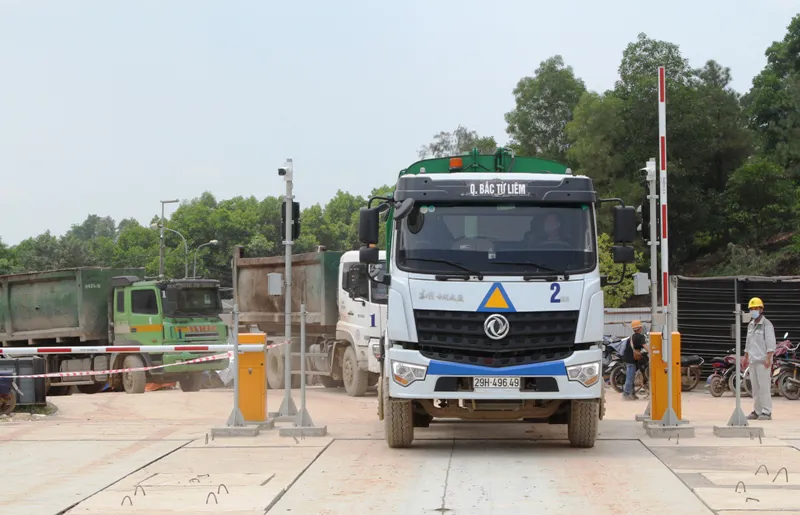Vietnam’s largest waste-to-energy plant to begin operation next month
When the waste-to-energy plant is in service, it will help Hanoi reduce pollution from waste.
Soc Son Waste-to-Energy Plant, the largest of its kind in Vietnam with a capacity of handling 4,000 tons of solid refuse per day, will begin operation in Hanoi in mid-August
Located next to the current Nam Son Waste Treatment Complex in the city’s Soc Son District, the plant, approved by the municipal authorities in late 2017, is designed to have a total investment of VND7 trillion (US$303 million).
More than 90% of the Soc Son Waste-to-Energy Plant has been completed. Photo: Van Nhi |
It has 16 entry gates suited to different types of garbage trucks currently used in Vietnam. These trucks are now testing the unloading of garbage at the 16 gates to ensure precision when the plant comes into operation.
The project’s investor is Hanoi-based Thien Y Environmental Energy JSC and its contractor, Chinese Metallurgical Group Corporation General Contractor MCC (China).
Once completed, it will be the largest of its kind in Vietnam and the second largest in the world. Currently, the world’s biggest is in Shenzhen, China, with a handling capacity of 5,000 tons per day.
On May 28, the plant received its first garbage trucks, officially operating the first phase of treating garbage after 21 months of construction.
For now, the plant is undergoing technical calibration. When put into use, it is expected to receive 450-500 garbage trucks daily.
The entrance to the facility has five weighbridges. Once arriving, garbage trucks would stop to be weighed before entering the landfill. Photo: Duy Khanh |
According to the Hanoi Department of Construction, the city currently discharges 6,000 tons of waste every day.
Most is buried at the Nam Son Waste Treatment Complex. It is hoped that the new plant will reduce pollution levels, which have for years affected the daily life of local residents.
Hoang Duong Tung, former deputy director of the Vietnam Environment Administration under the Ministry of Natural Resources and Environment, told The Hanoi Times that the waste-to-energy plant will contribute greatly to the city’s garbage treatment.
“Garbage burying is an outdated treatment technique. In many countries, waste is no longer waste but has become a valuable resource for life. Some countries even import garbage for recycling because the local amount of waste cannot meet the demand,” he said.













